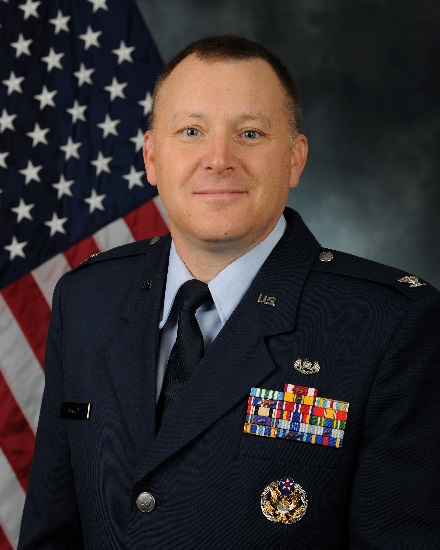
Guantanamo Naval Base, Cuba – More than seven years in, the Sept. 11 military commission at Guantanamo Bay has found a judge who could conceivably guide the case into its trial phase. Air Force Col. Shane Cohen, assigned to the case June 3, told the five defense teams and prosecutors on Monday that he expected to be in the assignment for at least two years – and that he did not face mandatory retirement for nine years.
Cohen also said he expected the Department of Defense and the Air Force to recognize the importance of giving all parties “the continuity" they deserve.
“Welcome to the sewer, judge,” James Harrington, the lead defense lawyer for Ramzi bin al Shibh, joked as he concluded his questioning of the judge.
Harrington and the four other lead defense lawyers probed Cohen in a voir dire session for any biases or opinions on pending issues in the case – including whether the U.S. Constitution applies to the proceedings. Cohen merely said that he has “wondered” about that and many other issues raised in the protracted pretrial phase that dates to the May 2012 arraignment. A trial date has not been set.
In numerous instances, Cohen acknowledged he was unfamiliar with much of the massive record and would look to the lawyers to educate him as critical motions approached oral argument.
“I think you will find over time that I am a very independent thinker,” Cohen said.
While the judge gave the defense teams and the prosecution until Wednesday morning to decide whether to make any challenges to his helming of the case, the extra time proved unnecessary. All parties decided on the spot that they would accept Cohen.
Cohen replaces Marine Col. Keith Parrella, the second judge on the case, who presided over his first session last September. At the time, Parrella already had his next assignment for the Marines scheduled; those plans did not change, and Parrella issued his final rulings just weeks ago. Defense teams unsuccessfully sought his disqualification from the case based on his prior service for the Justice Department division that has lawyers assigned to the Sept. 11 case. In fact, a challenge to Parrella handling the case is still pending in the U.S. Court of Appeals for the D.C. Circuit.
Parrella had a significant impact on the course of the litigation in his short stint. His predecessor, Army Col. James Pohl, who presided over the case for six years, prohibited the government from using statements the five defendants made to FBI agents in 2007 after arriving at Guantanamo Bay from CIA black sites. He did so as a sanction against the government for its restrictions on defense teams contacting CIA personnel suspected of participating in abusive interrogations at the black sites.
Parrella decided that Pohl’s ruling had been premature, and reasoned instead that the defense teams should file motions to suppress the FBI statements based on the evidence they had been given. The team for defendant Ammar al Baluchi has moved forward with its motion, and is set to argue with the government this session over which witnesses will testify in a suppression hearing.
But defense motions for Parrella to reconsider his reversal of Pohl are pending and now before Cohen. It’s possible that Cohen could view the issue as Pohl did and preemptively suppress the FBI statements without a full suppression hearing. Such a move would likely lead to an appeal by the prosecution team, which has said that the statements are critical to its case.
Cohen, who has served as both a defense lawyer and prosecutor, is now in his fifth year as a judge. He is currently the Deputy Chief Circuit Military Judge of the Air Force’s Eastern Circuit, and will soon ascend to the role of Chief for the Eastern Circuit. He said his “full attention” will be devoted to the Sept. 11 case. Cohen has never presided over a death penalty case, nor even a multi-defendant case; however, he took a course on capital litigation at National Judicial College earlier this year.
Under questioning by David Nevin, the lead attorney for Khalid Shaikh Mohammad, Cohen said that on the morning of Sept. 11, 2001, he was taking a course for military defense lawyers. He said he felt “shock” over the attacks but did not recall feeling any anger.
Harrington asked him if he felt any pressure to speed up the proceedings, which are now in their 36th pretrial session.
“Zero,” Cohen said.
Later, Cohen acknowledged that he had a “very Jewish” last name but was in fact a Mormon. He received both his undergraduate and law degree from Brigham Young University. He also has an LLM in environmental law from George Washington University Law School.
About the author: John Ryan (john@lawdragon.com) is a co-founder and the Editor-in-Chief of Lawdragon Inc., where he oversees all web and magazine content and provides regular coverage of the military commissions at Guantanamo Bay. When he’s not at GTMO, John is based in Brooklyn. He has covered complex legal issues for 20 years and has won multiple awards for his journalism. View our staff page.

